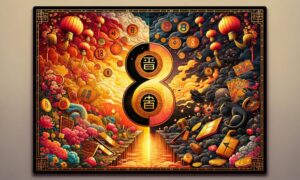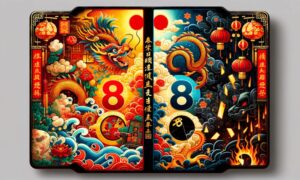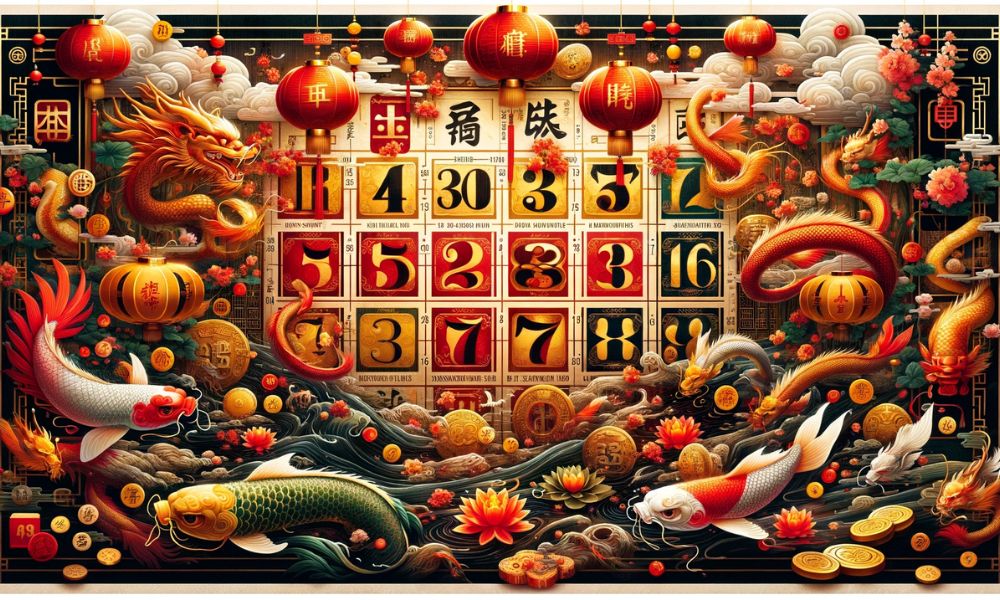In Chinese culture, certain numbers are considered lucky or unlucky based on how they sound when spoken in Mandarin. This is due to the fact that some numbers sound similar to words that have positive or negative meanings. Here are some of the most notable lucky and unlucky numbers in China and the reasons behind their associations.
Lucky Numbers
Eight (八 – Bā)

The number eight is considered to be one of the luckiest numbers in Chinese culture. This is because the word “八” (bā) sounds similar to the word “发” (fā) which means “prosperity” or “wealth.” So eight is associated with getting rich and having good fortune.
Some examples of how the number eight is seen as auspicious:
- The 2008 Beijing Olympics opened on 8/8/08 at 8 pm because the number eight was seen as lucky.
- Many Chinese people will pay more to have a phone number or license plate containing eights.
- The opening ceremony of the Shanghai World Expo started at 8:08 pm on May 1, 2010.
Six (六 – Liù)
The number six pronounced “liù” sounds similar to the Chinese word “留” (liú) meaning “flowing, smooth.” Six is considered to be a lucky number that represents smooth sailing and prosperity.
Some lucky associations with the number six:
- Chinese people will often incorporate 6’s when picking dates for weddings, business openings, or other big events hoping that everything will go smoothly.
- Addresses and phone numbers with the number 6 are popular and sell for more money.
- The number 6 is sometimes given as a generous gift at weddings or birthdays with the wish for smooth sailing.
Nine (九 – Jiǔ)
The number nine sounds identical to the word for “longlasting” in Chinese. So nine is associated with longevity, eternality, and infinite progress.
Reasons the number nine is considered lucky:
- Having 9 stories in a building is desirable because 9 sounds like the word for “longlasting.”
- Giving 9 or a multiple of 9 roses symbolizes eternally standing.
- Chinese mythology states 9 sun crows exist, symbolizing that the sun will shine forever.
Unlucky Numbers
Four (四 – Sì)
The number four is one of the most unlucky numbers in Chinese culture as it sounds nearly identical to the word “death” (死 – sǐ). Many Chinese people go to great lengths to avoid things arranged in fours.
Ways the number four is avoided:
- Never giving clocks or watches as gifts because 4 sounds like “death.”
- Floors or rooms numbered 4 are often skipped in hospitals and hotels.
- License plates and phone numbers containing 4’s are avoided.
- The number 13 is sometimes thought of as unlucky because it contains 4 when written out.
Seven (七 – Qī)
While seven is considered lucky in Western cultures, it is seen as an unlucky number in China because it sounds similar to the Chinese words for “speech” (气 – qì) and “anger” (怒 – nù). Therefore, it is associated with gossip and anger.
Reasons seven is considered inauspicious:
- Hospitals often avoid having a 7th floor or room
- Many highrises will skip floors that include 4 because it has 7 in them when written out.
- Chinese people may avoid 7 when picking dates for events like weddings.
Tips for Using Lucky Numbers in China

Look for Patterns with 8 and 6
Since 8 and 6 are seen as very fortuitous, look for opportunities to arrange things in multiples of 8 or 6. For example, business launches on the 8th or 26th. Or gifts of 8 or 6 items.
Avoid Giving 4 Items as Gifts
Never give someone 4 items as a gift like 4 flowers or watches. Opt for gifts in sets of 6 or 8. Also avoid multiples of 4 such as 24.
Check Room/Floor Numbers Beforehand
When booking a hotel room or office space, check beforehand to see if it contains an unlucky 4 or 7. Many times these numbers will be skipped and it’s good to confirm.
Pick Auspicious Dates with 9
For special events or occasions, try to select dates with 9’s which are lucky. Or numbers that add up to 9, 18, 27, etc if you can. Avoid date with 4’s.
Balance it Out
If gifts or numbers must contain 4 for some reason, balance it with lucky 8’s. For example giving a gift of 48 roses instead of just 4.
FAQs About Lucky and Unlucky Numbers
Are there any exceptions to the unlucky 4?
In some cases the number 4 is considered acceptable and not unlucky. Examples are when 4 is at the end of a price or in IDs. This is because the word for 4 sounds different (sì) than the word for death (sǐ) in those cases.
Do Chinese outside China still observe these superstitions?
Many Chinese immigrants and those with Chinese heritage outside of mainland China still believe in these superstitions around numbers. However, the observance of lucky and unlucky numbers tends to fade after a few generations living outside of China.
Are there regional differences?
There are some minor regional differences. For example, in Cantonese 7 and 4 sound less similar to the negative words so may not be as avoided. And some southern Chinese regions find 6 unlucky rather than lucky. But for the most part these number associations are fairly consistent throughout China.
What do Chinese drivers do since cars have number plates?
Drivers in China will pay large sums of money to purchase a plate with many 8’s or to avoid 4’s and 7’s. When that is not possible, some will add on additional decorative characters or attachments to “balance out” the unlucky numbers.
Are there other unlucky numbers besides 4 and 7?
While 4 and 7 are the most commonly avoided numbers, some Chinese buildings skip floors with 13 for fear of it being associated with bad luck. And the number 9 is sometimes avoided in financial or legal matters because it sounds like the word for “longlasting” so could imply illegal transactions.
Conclusion
In summary, numbers play a significant role in Chinese culture and traditions. The most notoriously lucky numbers are 8 and 6 as they sound similar to words for prosperity and smoothness. On the other hand, 4 and 7 are considered very inauspicious due to their resemblance to words for death and anger. Chinese people may make major life decisions like wedding dates based on avoiding these unlucky numbers. While these beliefs may seem like mere superstition, they hold deep cultural significance for many Chinese people. Paying attention to lucky and unlucky numbers can make a difference when interacting with Chinese clients, partners, and friends.






